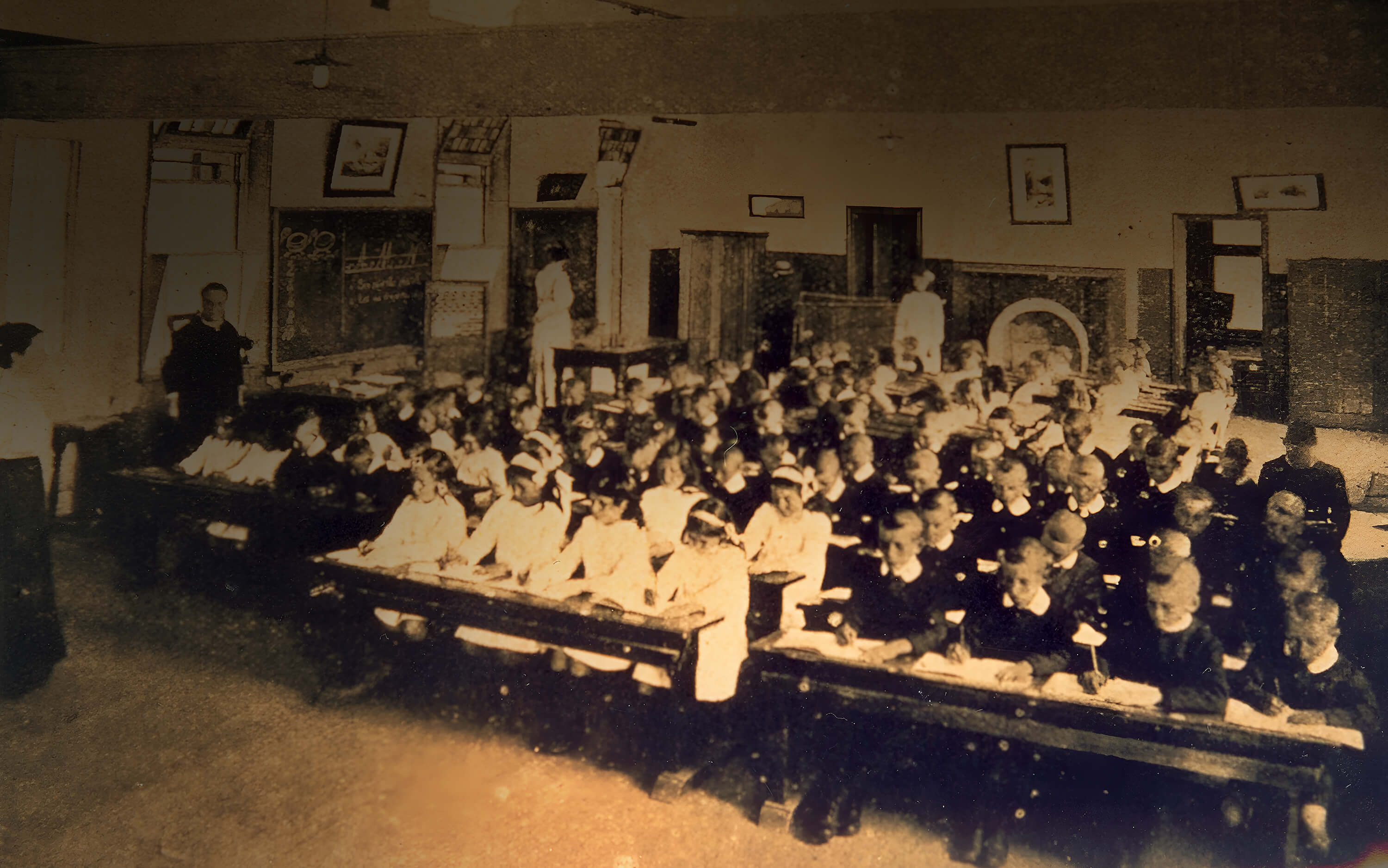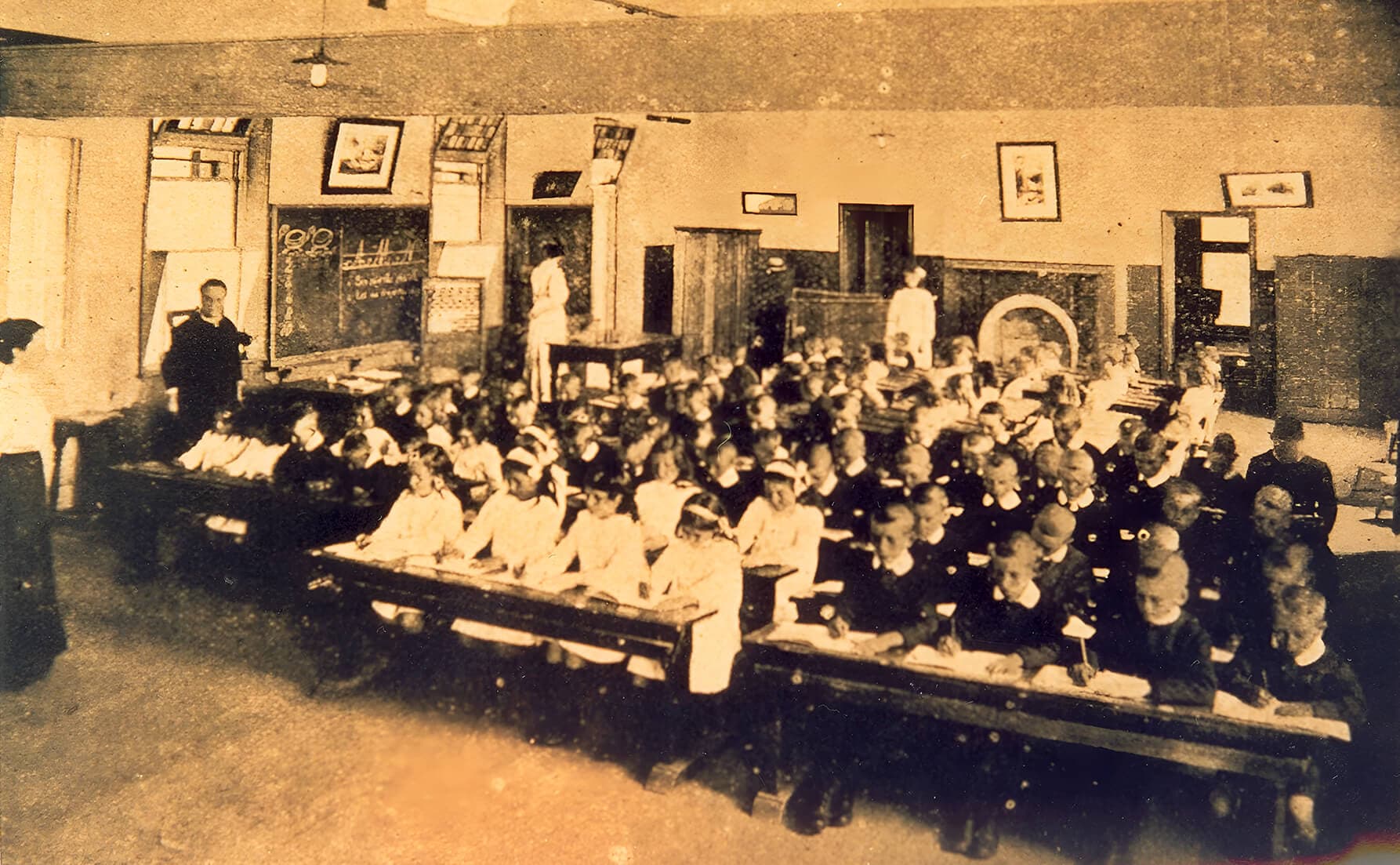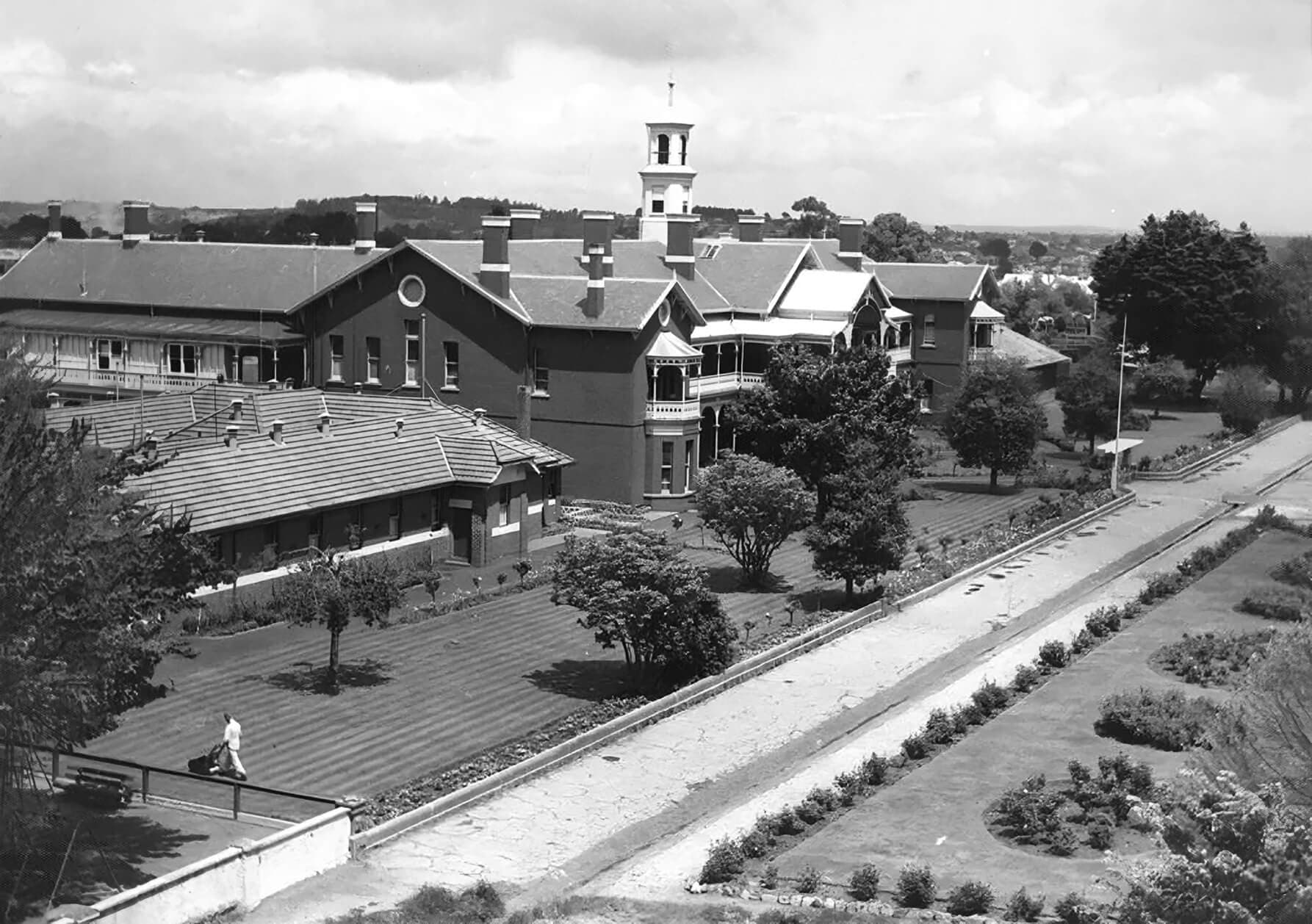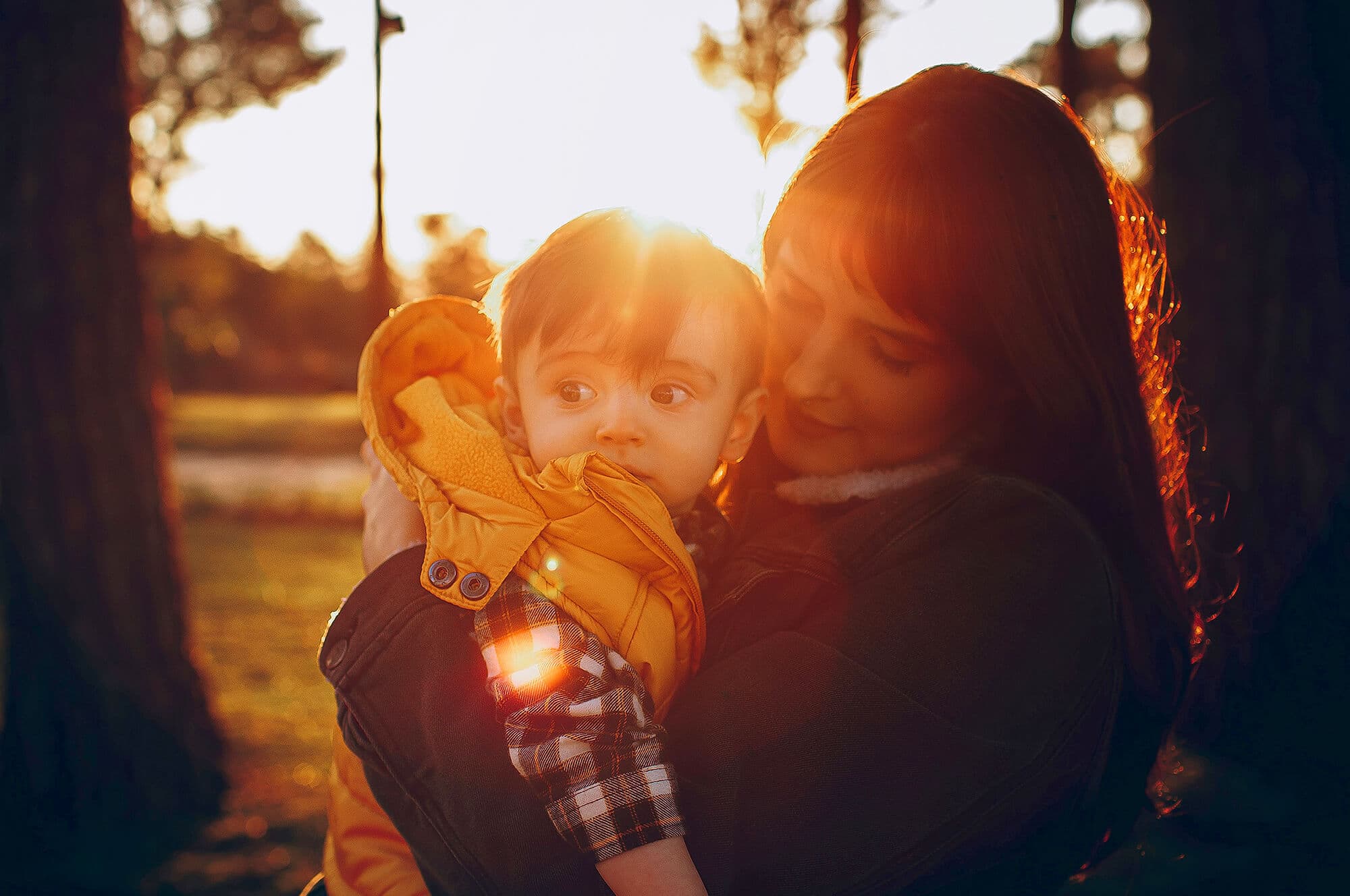

Our story spans more than 160 years of learning, listening and evolving to serve the children, families and communities of the Central Highlands in Victoria.
Local people built Cafs and continue to shape our future for children and families in need.
We began on Victoria Street in Ballarat East in 1866. Our secular organisation was created by local civic leaders and businessmen who responded to Ballarat’s hardship following the Gold Rush.
Originally an orphanage, we’ve since evolved to support the community in many ways. While children once came from across Victoria and beyond, today our work is deeply rooted in local partnerships. We continue to support families and individuals across the Central Highlands with services that meet real, local needs.

Cafs’ transformation reflects the shift toward family-centred support, always adapting to better serve the community.
These children were:
The Asylum was run by a secular Committee of Management formed in 1865. Admission required sponsorship from a donor and proof that the child’s parents were ‘honourable’ — typically meaning they were or had been married.
The facility featured four dormitories (about 50 children each) and a dining hall that seated 200 children at once.

Despite the name change, the institution functioned similarly. An air-siren structured the day, and children performed much of the labour. Many were referred to as ‘inmates’ and went to work at 14 as domestic servants or apprentices.
By the 1910s–20s, the Orphanage began accepting State Wards (some with criminal convictions under Neglected Children’s Acts). The Toddler’s Block and partial buildings from this period still stand today.

In the 1960s, four smaller, modern cottages were built. The Asylum was demolished in 1968 and renamed the Ballarat Children’s Home. Each cottage housed around 40 children, split by gender.
In the 1970s, the institution phased out residential care in favour of foster placements, with the last residents leaving in 1983.

Cafs swapped premises with St Paul’s Technical College, moving to the Lydiard Street site that still houses the organisation today.
This marked a shift to a decentralised, program-based model focused on family reunification, foster care and early intervention.

Cafs grew its service offerings across housing, counselling, early intervention, prevention and community-based care.

Today, Cafs operates through a client-centred, trauma-informed approach (TBRI®), offering broad services for children, families and individuals across Victoria.
Our history of institutional care has shaped a deep commitment to child safety and family support.
We’ve transformed into a trauma-responsive, inclusive organisation guided by lessons learned. Our past informs every decision, ensuring the safety and dignity of the children and families we serve.
Moving from institutional care to trauma-informed therapeutic support (TBRI®)
Prioritising prevention, early intervention and community care
Expanding to housing, parenting support, counselling and more
Operating under a local, skills-based Board of Governance
Key changes include:
Cafs’ biannual newsletters share updates and reflections on our shared history. Available to all former residents and their families.
To update your details or unsubscribe, email: records@cafs.org.au

Our past isn’t just where we’ve come from — it’s why we do what we do today.
We’ve transformed through listening, learning and taking accountability. Today’s inclusive, therapeutic and community-based services reflect this growth. Our work is built on decades of lived experience and empathy.

Let’s build a better future, together.
Whether you’re reaching out for support, seeking more information or looking to give back, partner, join or volunteer, we’d love to hear from you.
Contact Cafs